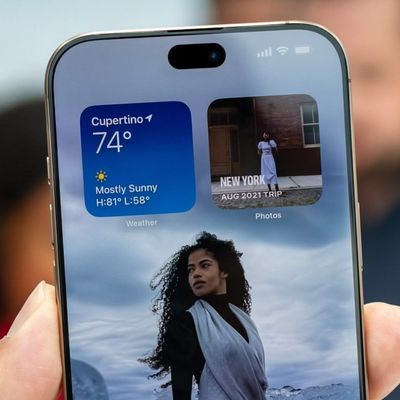The iPhone X has been available for a little over a month now, which has given consumers time to adjust to the new biometric authentication method, Face ID. Face ID replaces Touch ID, unlocking the iPhone X via a face scan rather than a fingerprint.
In the video below, we decided to take a second look at Face ID after having spent some time with it to see how it measures up to Touch ID and how it compares to similar facial recognition options in devices like the OnePlus 5T.
For the most part, Face ID works well and is at least as quick as Touch ID, but there are some undeniable pain points. When the iPhone X is held in landscape mode, like when you're in bed, Face ID often doesn't work. It can also have trouble when it's flat on a surface and can't get a good read on your face, and when you have sunglasses, a hat, or a scarf covering your face, it can be hit or miss at times.
These points of failure don't apply to some of the other smartphones that use facial recognition techniques. The OnePlus 5T, like devices with facial recognition from Samsung, uses multiple biometric systems with facial recognition paired with a fingerprint sensor.
Face ID is, however, in most ways superior to the facial recognition options used by competing devices, simply because it offers more security. Face ID is using 3D depth sensing with an infrared camera and a dot projector, while companies like OnePlus and Samsung are using 2D methods that rely solely on the front-facing device camera.
Without 3D depth mapping, the OnePlus 5T's Face Unlock feature can be faster than Face ID, but it doesn't work in low light, unlike Face ID, which can work in almost all lighting conditions. It's also more of a convenience feature than a security feature and it's not used for authenticating passwords or mobile payments.
KGI Securities analyst Ming-Chi Kuo has said Face ID is years ahead of similar facial recognition techniques from Android smartphone makers, and that's evident in the functionality divide between the OnePlus 5T and the iPhone X.
Still, some people are having trouble adjusting to Face ID and miss the convenience of certain Touch ID features, like being able to unlock the iPhone regardless of its position.
Love it or hate it, Face ID is here to stay. Rumors already suggest Face ID will roll out to the 2018 iPhones, and we're also hearing that Face ID will expand to additional devices like the iPad Pro in the future.




















